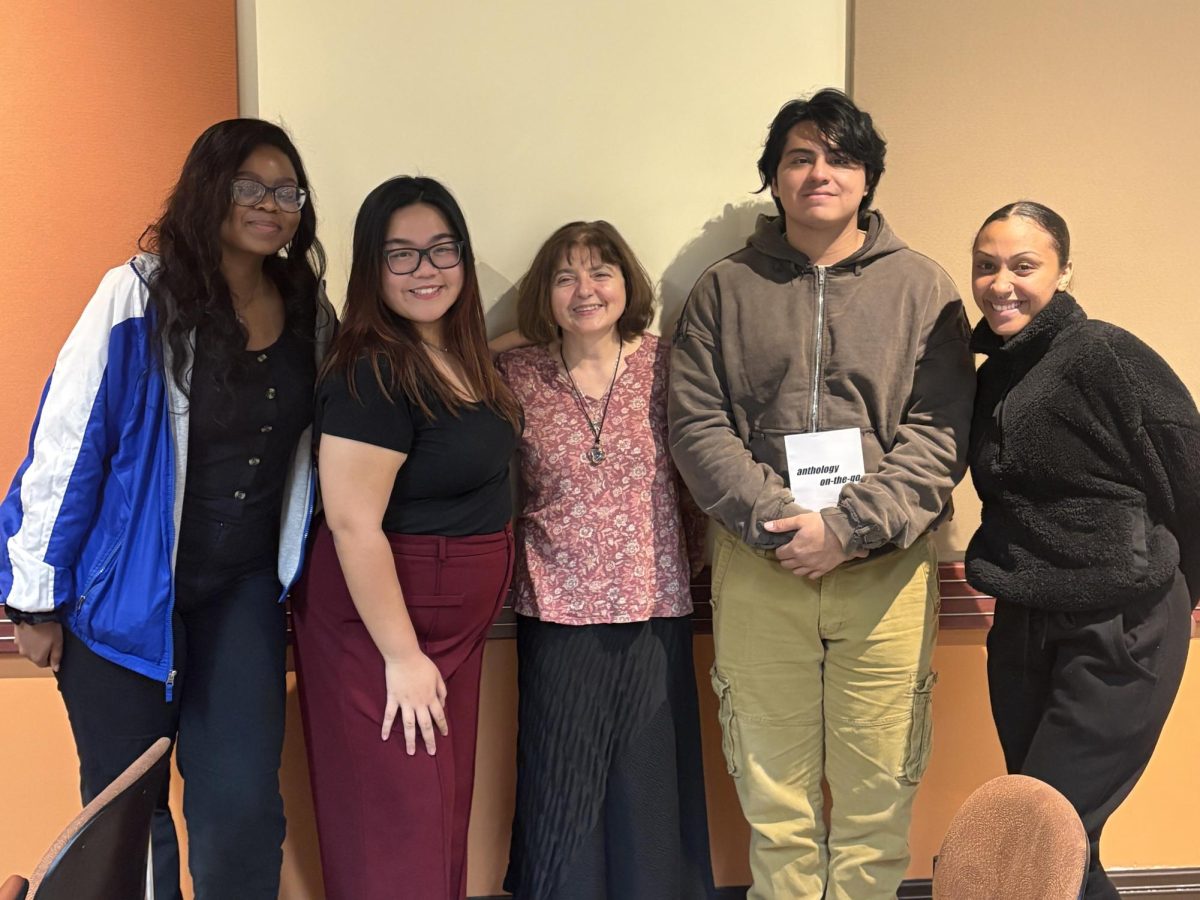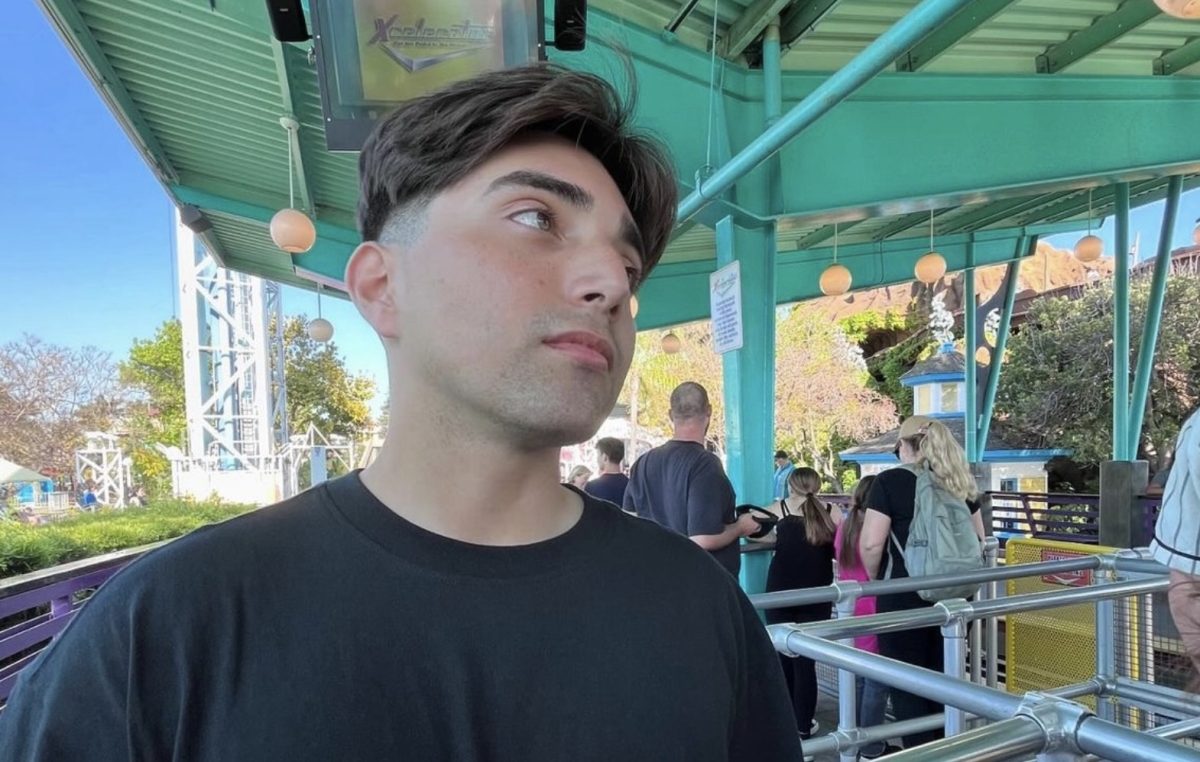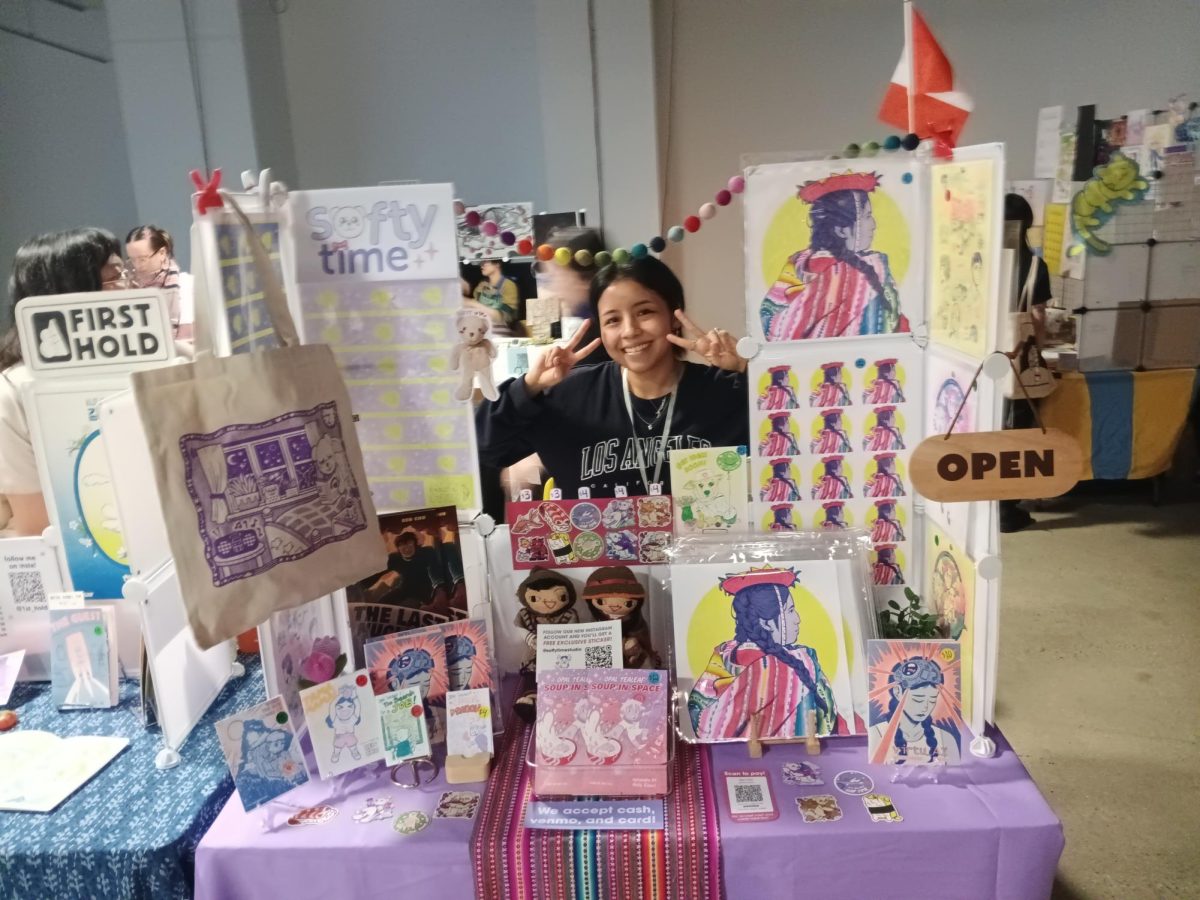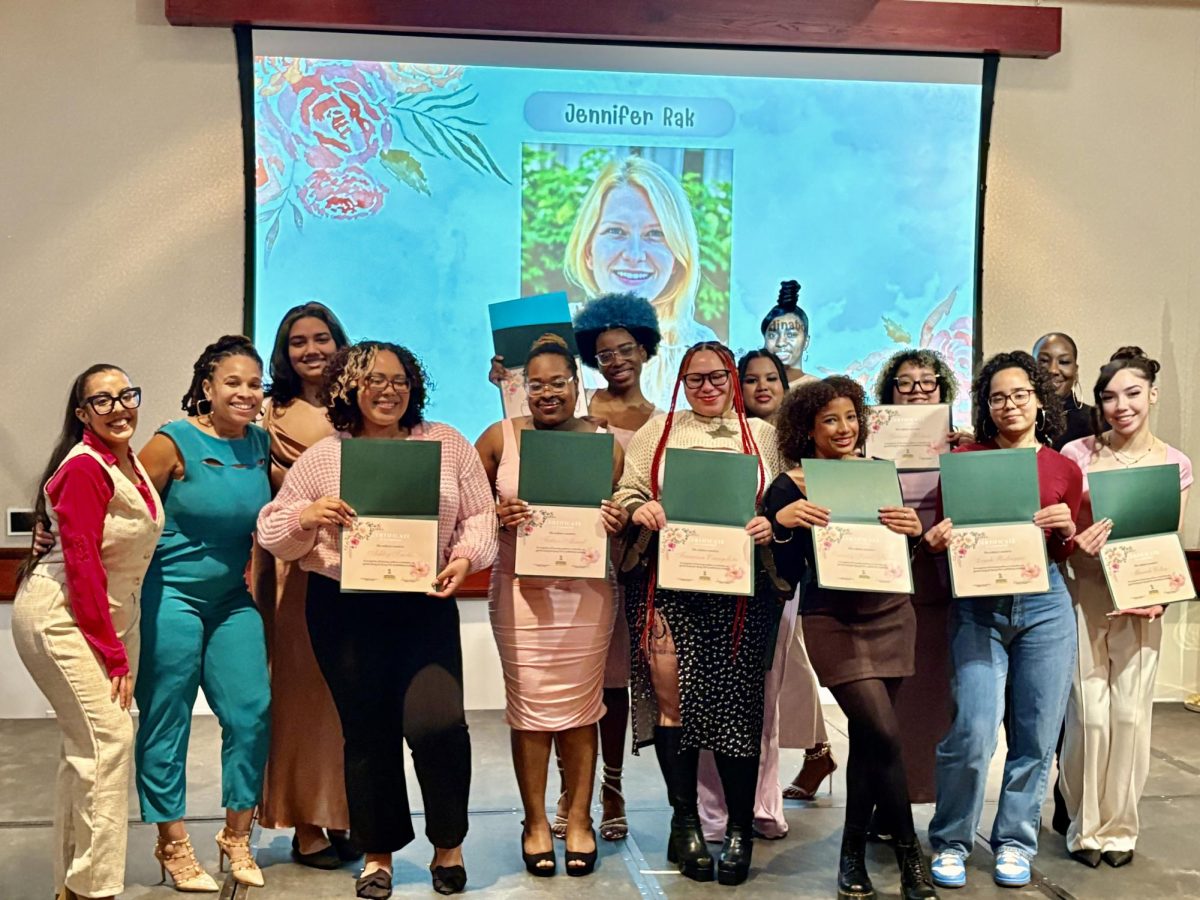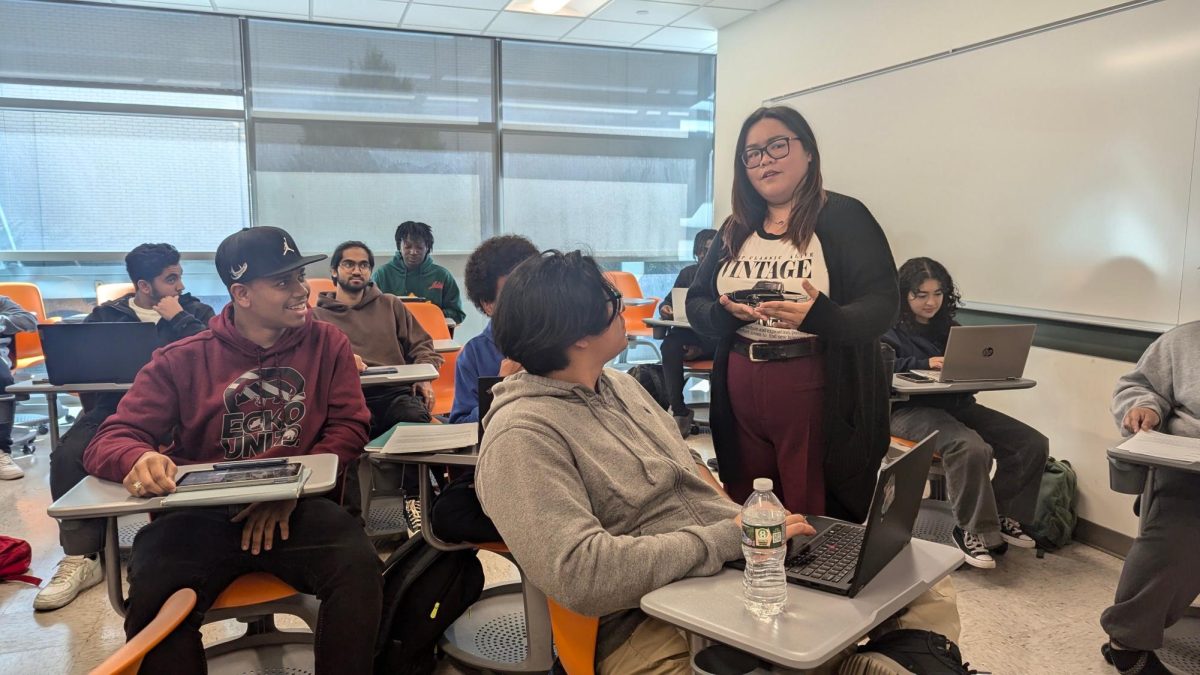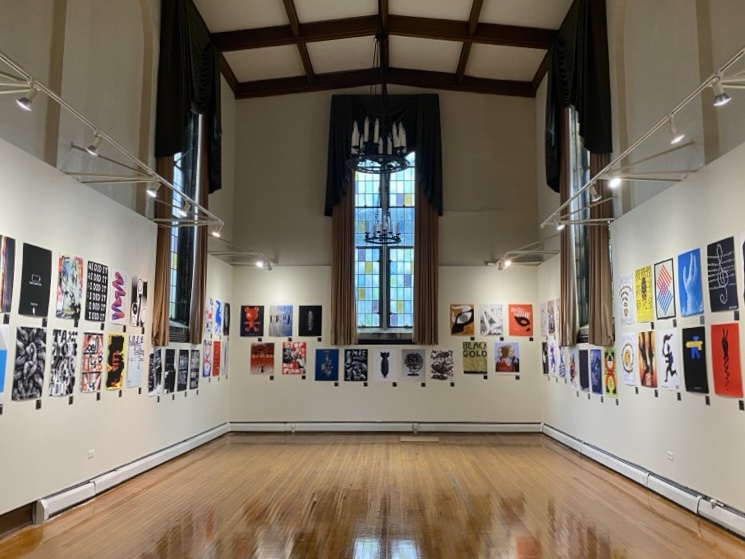A two-part series in which embedded tutors in NJCU’s Learning without Limits program reflect on their work with first-year composition students and their partnerships with faculty.
Part One
Learning without Limits (LwL) supports NJCU students “from composition to career” thanks to a five-year United States Education Department Title V Grant. As the Academic Coordinator for LwL, I have the privilege of working closely with a fantastic group of dedicated tutors who inspire me every day with their hard work and commitment to student success. LwL tutors partner with faculty to support students in first-year composition classes, in the Writing Center, and beyond. At the end of last semester, the tutors wrote reflective essays in which they revisited the pedagogical work they had done during the semester, with its challenges and rewards, frustrations and victories. It is a pleasure to share selections from those essays here.
To learn more about LwL, follow us on Instagram where you can see our tutors, faculty, and students in action. To become an embedded tutor, email [email protected] or DM us @LwL_at_NJCU!
—Joshua Fausty, Professor of English, Academic Coordinator, Learning without Limits
Embedded tutoring is not just ushering students to academic success. It is much more about the personal: who the students are, where they come from, and what led them to choose NJCU—especially students from different countries. Embedded tutoring is welcoming beginning students with open arms, alleviating any anxieties and pressures they have, understanding the different needs of each student, and making them feel comfortable enough to express themselves both verbally and through writing. Lastly, embedded tutoring is education itself, a ceaseless learning process between the tutors and professors as we gradually learn from each other whether that is through different teaching methods, reading and writing activities, or strategizing challenging practices in the English composition classroom for the students’ benefit. All of this is to say, through my current experiences last fall, despite my personal feelings of ineptness in the beginning, I find myself feeling much more confident in my ability to communicate and empathize with others, work in a team, and form meaningful connections.
—Marina Castillo, LwL tutor, NJCU ’24
I liken the relationships fostered by me and the classes I’ve tutored to those of bees and flowering plants, where both groups rely on each other to prosper. By allowing me to tag along on their learning journey, my bees have directly and indirectly supplied me with the pollen grains of insightfulness, confidence, and community. Getting to know and understand different students and helping them sustain themselves in the courses—with their cooperation, of course—has strengthened my academic abilities and given me the opportunity to develop as a communicator.
Life is unpredictable, more so for the students enrolled in NJCU. Noticing that one student was falling behind on his work towards the end of the semester—a little too late, I admit—I stopped asking him whether he wanted my help and simply asserted that I needed to be involved. He was able to turn in most of his missing work as a result. To properly wield authority, I understand that I must abandon meekness.
Having a supportive professor as a colleague has been intellectually enriching, as I constantly gain from their intuition to impart knowledge. Throughout our partnership, my confidence was reassured, which empowered my interactions with students, forming a robust relationship with those who were responsive to me. Stifling my deeply ingrained self-doubt and self-consciousness was challenging but ultimately necessary for my development and effectiveness as a tutor.
—Ruth Okeo, LwL tutor
The program has revealed issues within myself that I wouldn’t have found otherwise. Embedded tutoring taught me discipline through weekly introspective meetings, time-keeping duties, and the fact that I had to be extremely attentive to my students’ needs. Early in the semester, I had an epiphany that maybe I genuinely had a laziness problem. This explained my initial shortcomings: not showing up early enough to tutoring, missing timesheets, and missing check-ins. I’m so happy to admit that embedded tutoring allowed me to stop my—to be candid—straight B.S. After sitting with this realization, I started showing up 10-15 minutes earlier, I got my timesheets organized, and did my best to attend every check-in. I knew I had the tools to be a great tutor, I just needed to access them.
Embedded tutoring affirms my love for people and guides me through my social development as someone who found comfort in floating in the background of life. Embedded tutoring puts me front and center, endowed with the responsibility of opening
myself up to students so I can best help them. I took the social initiative with my students and built connections, which surprises me as I’m the type to not say a word to my classmates on the first day of class. At the same time, embedded tutoring taught me that some interactions are not going to work out and that’s fine—like rejection therapy, in a sense. However, for the students who didn’t open up to me as much, I’m happy that I didn’t close myself off and give up, but instead I kept letting them know that I was here for them.
—Jason Laderas, LwL tutor
From answering quick questions to providing one-on-one tutoring, I enjoyed playing a role in someone’s academic journey. Tutoring has been a learning experience full of surprises, such as how much I would learn from the students I tutored. One struggle I faced was not having all the answers, which was uncomfortable at first. I wanted to be able to help every student who came to me. I learned it’s okay to say, “I don’t know” and to work through problems together to find the solution. This experience has taught me to step outside of my comfort zone more frequently because it can lead to amazing things.
—Serena Isaac, LwL tutor
I was building connections with these students outside of the classroom. When they would see me on campus, I thought it was great that they would stop and converse with me. This experience led me to open up more and become confident standing in front of a group of students. I have moments where I can be quiet and hesitant myself, but this experience steered me away from those feelings of insecurity.
I will definitely miss the support system I had this semester. I enjoyed my weekly meetings with Dr. Frost and [fellow tutor] Heymi; it was an opportunity for us to collaborate and learn different ways of making the classroom environment more uplifting for the students. I also enjoyed the weekly meetings with Professor Fausty and all the other embedded tutors. It was helpful to have conversations about the great and not so great things happening in all our courses. The support and feedback from every tutor and Professor Fausty was inspiring. We were all there to help each other and the students we were working with.
—Sofia Asali, LwL tutor
This wasn’t just any job. It was a job that I had earned. Unlike other jobs I have had, it would be my first job that would reflect the hard work I had put in academically.
Being a tutor this semester has been one of the most idiosyncratic experiences of my life; I say that without an ounce of overexaggeration. It has been nerve-wracking, overwhelming, stressful—but also promising, fulfilling, and rewarding. I didn’t realize that tutoring would cause me to do so much self-work and reflection that would contribute to my growth as an individual person. Being able to see and hear that after students meet with me, my words truly help them, has spurred my confidence in my skills as a writer. I knew I could write—writing has always come naturally to me, and my English teachers have always given me the highest praise. But tutoring—hearing the words, “that helps a lot,” or seeing that my students use strategies I’ve introduced to them in their papers, is what has made a true impact. To be able to see that my words, my advice—my existence—can benefit others has changed me. It has fueled an already existing desire to grow, which is why I have decided to pick up the English minor.
The students I have worked with have inspired me to continue to expand my knowledge, and so have the fellow tutors and faculty members I work with.
I have made friends at The Writing Center that support me in every way. I feel safe at The Writing Center. I feel welcome at The Writing Center. I feel confident at The Writing Center. I have a community at The Writing Center. I recall Dr. Wallace saying that when we write these end-of-semester reflections, we don’t have to say this experience has dramatically changed our lives forever. I turned to my fellow tutor, Sara, and whispered, “But it did.”
—Kyla Byris, LwL tutor



